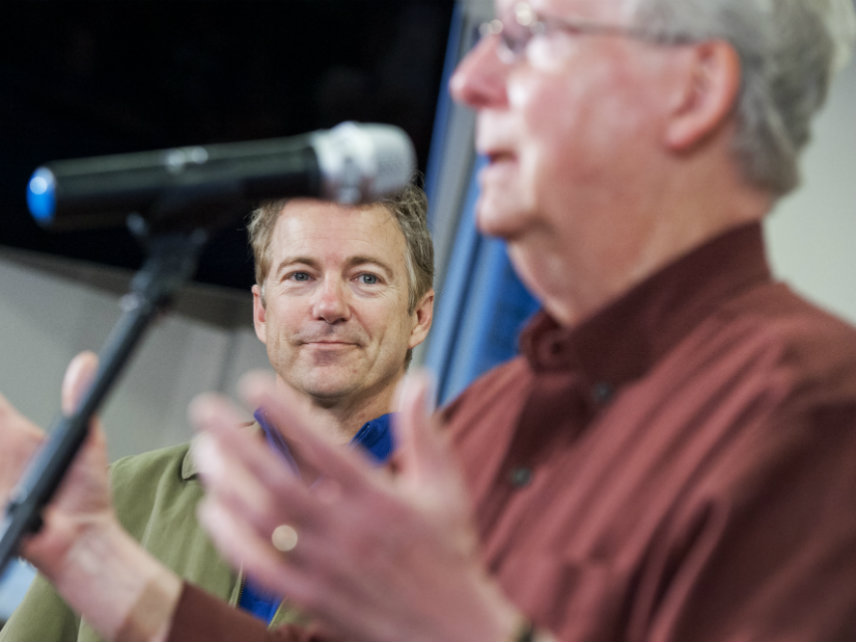Health Care Bill's Senate Defeat Paves Way For Rand Paul's 'Clean Repeal' Bill; Vote Expected Soon
Paul: "If every Republican that voted for the clean repeal in the past votes for it again, it would pass."

The Senate voted down a proposal to "repeal and replace" Obamacare on Tuesday night, potentially opening the door for passage of Sen. Rand Paul's so-called "clean repeal" bill today or later this week.
Nine Republicans, including Paul, voted against the comprehensive amendment offered Tuesday night on the floor of the Senate. Parts of the bill may have needed 60 votes to pass, but the Better Care Reconciliation Act won only 43 affirmative votes, falling well short of even a simple majority.
The vote was a microcosm of all the issues that have plagued the Obamacare replacement since it arrived in the Senate after narrowly clearing the House on May 4. The GOP leadership included elements meant to appease moderates (like an extra $100 billion in Medicaid spending added to the bill with an earlier vote Tuesday) and other pieces aimed at enticing more conservative or libertarian members (like Sen. Ted Cruz' amendment to allow insurance companies to offer less expensive, less comprehensive plans). But neither camp was fully satisfied. Paul and Sen. Mike Lee (R-Utah), who have criticized the Republican effort for retaining too much of Obamacare, voted against the bill on Tuesday night, but so did such moderate Republicans as Maine's Susan Collins and Alaska's Lisa Murkowski.
With opposition to the BCRA spanning the breadth of the Senate GOP's ideological spectrum, the way forward for this "Obamacare Lite" proposal seems shut.
Where do we go from here? Today the Senate is expected to take up Paul's proposal to repeal Obamacare without a replacement. The bill would eliminate the Affordable Care Act's individual and employer mandates and would repeal several Obamacare taxes, such as a tax on medical equipment, but it would delay the full repeal for two years to give Congress time to formulate an alternative.
As The New York Times reports today, no version of Paul's repeal bill (plus amendments) is likely to become law, but it could become the basis for a conference committee with the House, if it gets enough votes to clear the Senate first.
This was Paul's plan Tuesday when he voted in favor of a motion to proceed, allowing the Senate to begin debate on the health care bill and its amendments. That vote was a perfect 50-50 split (with Vice President Mike Pence breaking the tie), so any single Republican could have blocked the process before it even started.
Indeed, Paul said in a statement Tuesday that he agreed to support the motion to proceed only after getting assurances from Republican leaders that his repeal bill would be considered after the comprehensive health care bill failed.
"This is the path I've been urging, and what I discussed with President Trump. If this is indeed the plan, I will vote to proceed and I will vote for any all measures that are clean repeal," Paul said in a Facebook post Tuesday.
A vote on Paul's so-called "skinny repeal" bill could happen as early as noon on Wednesday. The Senate has previously supported bills to repeal Obamacare, but it remains unknown whether Paul's effort will have sufficient support this time around.
"We don't know which way it will go," Paul said Tuesday. "If every Republican that voted for the clean repeal in the past votes for it again, it would pass."
